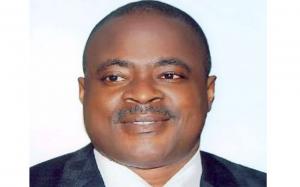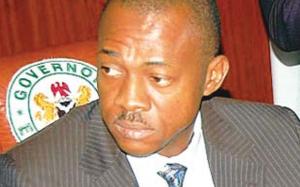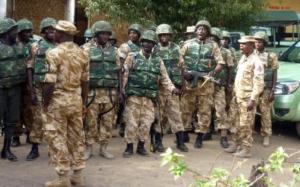
The Rector, Kaduna Polytechnic, Dr. Muhammed Bello Ibrahim, in this interview with ISAIAH BENJAMIN, speaks about the challenge of running the institution, his relationship with the unions and his programme for internal revenue generation. He contends that turning the instituion to a university will bode well for technical education in the country.
How has the journey so far been as the rector of Kaduna Polytechnic?
I would not say tough. But it is really quite a challenging journey. Here, you have an institution that came through crisis. We all know what happened to Kaduna Polytechnic over the years, specifically the crisis it went through, and for nine months the institution was closed down - no academic activities. The union and every sector of the institution was practically affected, in between, we had acting capacities. There were two instances and I just came in to actually serve. Within that period of crisis, the management was dissolved also the council. There was a white paper recommendation and things like that. So when we came in, actually, the last regime managed to stabilize the institution. But we came in to inherit a great deal of challenges especially expectations from staff as well. Ever since we came in, our idea was that of maintaining peace and order and actually building on what we met so that the institution is fully stabilized. We specifically went into confidence building mechanisms that will actually bring about peace, harmony and understanding among the staff and equally also those measures that will actually reinforce assurance to staff that they have the people who can oversee the affairs of the institution justly and fairly too in all our activities. I think, so far, if you take time and interact with staff, I think we are actually making substantial head way. It may not necessarily be that it has not been easy, because the stress in is there. You have to work from morning. You have to stay till evening and at times late at night with meetings all the time. That’s the challenges. But apart from those challenges is essentially that of meeting up with the demands of our unions.
One of the challenges that paralyzed the academic activities in the institution for three months was the allegation of financial misappropriation against the then management by ASUP. You promised, when you came on board, to use all powers available to you to block all financial leakages; to what extent have you achieved this aspiration?
Very well, I think,. I can say with confidence that, so far, we have blocked substantially, all ways by which all monies are even lost or being siphoned away. We are looking for other ways, including the use of ICT and sophisticated technologies that we can muster within our powers and it is very important to do that, considering the meager resources that the institution receives and the large number in terms of population of both of staff and students. As you may know, the institution is the largest in West Africa, south of the Sahara; your guess is as good as mine that you need a lot of money to run an institution like that. So the little you get, certainly you have to jealously guard it. Our major revenue is essentially is from what we get from student registration, consultancy services and other affiliations we do. So we focus on all these and it has paid so far. We are not recording losses because we know what we are expecting. We compute these things and go on with mental arithmetic; on daily and weekly basis, we compile all financial and audit reports on what we have, every now and then. We don’t leave things to chances. What we want is to have a system. It is when you have a system that is self accounting, and then automatically, the people that will man the system will equally be watched so that there are no rooms for any leakages.
What is your working relationship with the unions, particularly with ASUP, NASUP and SSANIP?
I am a unionist myself. We were the first group that introduced the Academic Staff Union of Polytechnics (ASUP). I was first executive from Kaduna Polytechnic. So I know the demands of the staff. Over the years that has gradually resulted in crippling the institution. It is a very painful thing. Nobody is happy to see where he is working crippled to standstill. But thank God we came out of it. We have actually substantially been engaging them. The first we did was to engage all the unions the academic ASUP, SSANIP and the NASUP. We are constantly engaging and going into dialogue and discussion with them - in the office, at home, elsewhere when we meet. Any opportunity, we get, we discuss issues with them. As far as I am concerned, there is no barrier. If you were here yesterday, you would have seen us, almost three hours when we were together with NASUP. We were discussing areas the institution could assist them; the same thing with SSANIP. What I always tell them is that, fundamentally; we need to have the institution first before we have the union. We need to have a Kaduna Polytechnic first, before we can have the NASUP, ASUP, and SSANIP. So first and foremost, our target is to make sure that the institution is there; not only that we have a Kaduna Polytechnic, but to serve as leadership to other polytechnics in the country. Our target is actually to make sure that we come out of the crisis. And we provide the leadership. So as far as relationship with union is concerned, it is excellent. There were some outstanding allowances. The first thing, I looked at a critical period, so before Sallah, we targeted to pay them. In fact, they did not believe that it will be possible to pay them. We did it. We put all resources together and made sure that allowances for the evening classes, particularly which was ASUP, were paid and that was the money most of them used to buy their sallah rams and other things for sallah preparations. At the same time, before the Christmas and New Year, we packaged other allowances. That has actually made the union completely come to terms with the management on grounds of good relationships. They know actually we mean what we say and we follow it with action and the action is carried out within the stipulated time we give to ourselves. I can assure you that all the unions are happy. Now we want to focus our attention to development of infrastructure in the institution and targeting our attention to making life conducive to our students who are our valued customers. You know without the students, there is no institution. We equally take them very seriously. We try to see that all their problems, and complaints are equally attended to as much as possible and within the confines of our limited resources.
You also gave the assurance that you will pursue vigorously the conversion of Kaduna Polytechnic to a university; to what extent have you gone about the conversion?
The conversion issue is a federal government decision actually. Ours is actually to put pressure and the pressure may not necessarily be in the open. Everything is in shape. I think that was actually the first comment by the minister. Now that it is the substantive institution to the extent of having a rector, hopefully the conversion issue will eventually pick up and we will make effort to actually put pressure directly or indirectly to the people that matter in the issue. The conversion is a good process. You know the institution has come a long way in terms of history. I think it is older than second generation universities. In actual fact, it falls in line with first generation universities. In terms of size, facility and infrastructure, very few universities in actual fact can compete with what is on ground in Kaduna Polytechnic. You have a population of staff of about 2,600, very young and energetic. We have a total of PhD holders numbering about 270 or there about of those either finishing or already on ground. I can assure you; this is a figure that not every university can boast of. Most importantly too is the history and unique nature of the institution, its position vis-à-vis technical education in Nigeria, I can assure you, it has everything it takes. If given the opportunity, Kaduna Poly will take this country to greater height in terms of technical innovation and sophistication. It is something that if the federal government sticks to it and allow its realization will bring tremendous development to the institution and to the country in general considering the history, size and opportunity abound within the institution.
Recently, you were quoted to have lamented the flight of PhD holders of lecturers from the institution; if this conversion to university becomes a reality, how do you think this will affect the institution?
Positively, if it becomes a reality and it is converted to a university. It means those running away to other polytechnics, not that they are going to other polytechnics, in most cases they rush to universities - because it is only logical that when you get a PhD the next thing is for you to attempt for is the desire to become a professor. I told you, there are young people with energy in them. You don’t expect them to stand by watch their own mates move to the very peak. It is expected that by the time we get the conversion, it means therefore we will be in position on our own actually, because I guess there are many around who would have been professors if it were to be a university, because what it takes actually is to carry out effective supervision of projects then convert those items for promotion. It is not that you have to go back to classroom where you supervise and it is adjudged that you have made the minimum requirement for becoming a professor. This is history where actually, given the upper hand of the university over the years, one would have been a professor or associate professor. It is just that it does not exist within the polytechnic system and that explains why as soon as people get PhD they rush out to universities. It is not good because here also we need them to supervise quality research that will actually be used for developmental purposes for industries to patronize our research works. The conversion could translate into positive benefit to the institution. It means we want to retain them. I told you we have over 50 of them over a year. If that is the case, we have about 250 or more and some training abroad. If we can retain these ones and others, then I can assure you, in not too distant future, we will be able to compete with any university around, especially with our plans on ICT and stuff like that.
What measures are you putting in place to ensure the security of the students, staff as well as infrastructure of the institution?
That is the area I don’t play with. Having stayed for 10 years in Niger Delta, I know what security means; I know what protection of lives and property is. The first thing we did on my coming into office is that we re-invigorated all machinery in respect of security. We meet constantly. We have what we call rapid response committee that actually deals with any emergency situation that could be of security threat. Only this (that) morning I called a meeting of all the security heads and we discussed how to continue to secure our boundaries and fences in making sure that our own students and staff are not unduly taken advantage of by hooligans or by anybody for that matter. So what I demand everyday is that the acting chief security officer should present a situation report of security around our campus, so that I go through it every morning; in fact that is the first tea or coffee that I take. Until when I realize that everything is calm, then I attend to other mails of the day, otherwise I make it a duty to know what is happening before I start any day’s work. We have a security consultant - a retired colonel, and he has a lot of experience in intelligence gathering and we have the SSS on ground which gives us security reviews. Everyday we communicate with them. We try equally to secure the environment of the institution to make sure our property is equally protected.
Any plans to improve welfare packages for the staff?
Yes. You know everything borders on generation of internally generated Revenue (IGR). If I have my way, I would have introduced a salary like it is obtainable in the oil industry. My target actually is to see an institution with a robust revenue base. I even want a situation whereby we shouldn’t be waiting for government to pay us salary. From our own consultancy works, the industry that we intend to actually set up. We actually intend to set up a situation in which we should be able to take care of our problems. When we came into office, our table water was selling at N30,000 per week, now it is about N170,000 per week. Our bread was making about N3,000, now it is about N17,000. We have other outfits like block industry which we intend to re-engineer to make sure that major construction work are actually carried out properly. They come to buy our blocks. We intend to establish skill acquisition centre where we intend to train our youth in partnership with government, and in such manner we help to generate revenue for the institution and help in addressing institution’s problems in Kaduna town and the state in particular and the north in general. Our target actually is tomake billions in terms of IGR so that we should be able to compete with some of the state governments in terms of revenue generation. When we do that, we should be able to get special packages for out staffers. We have the capability to establishing automobile mechanic village, industrial park, where you can repair machines, vehicles, just like the Mandilas and other private companies. We intend to go into private practice seriously and ownership of companies.








